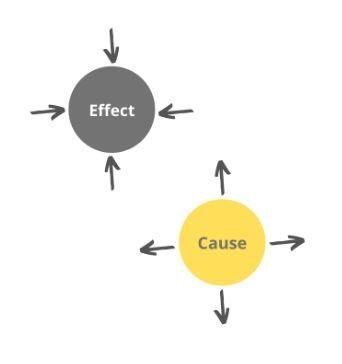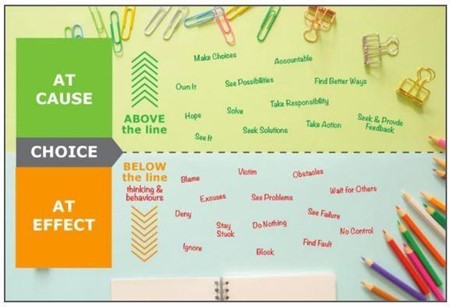
Let’s say there are two types of people in the world (a huge generalisation I know, but bear with me); those who are “at effect” and those who are “at cause” in their life. Each group of people use language and see the world differently.
For those people who are at Effect, life seems to happen to them. They use language such as “I can’t” “It won’t” or “It’s their fault”. They also believe they have no control over their world or how they operate within it. They believe the world is dictating to them, they are a powerless puppet on its string.
For those people who are at “cause”, life is theirs to develop. They use the language of possibility such as “I can”, “I believe”, “It’s possible”, and “I accept responsibility”. They believe the old saying “If it is to be, it is up to me”, they understand that they have agency in their world.
Another way of looking at it links with ‘above’ and ‘below the line’ thinking and behaviour. The diagram below provides examples of some of these.

At the midline, we see the word `Choice’. No matter what the situation, we always have a choice. Within his book “Man’s search for meaning”, Vicktor Frankl recalls the horrors of his time in a Nazi Concentration Camp. His words have been reframed in the following statement:
Between stimulus and response, there is a space. In that space is our power to choose our response.
In our response lies our growth and our freedom.The choice is always ours as to whether we wish to be “at cause” or “at effect” in our lives and work.
I leave you with three questions to ponder this week:
- What do you choose – to be at cause or at effect?
- What is your organisation’s collective default?
- Where is your agency both personally and collectively?

